From the moment Eleanor was born, her path had never truly been hers.
She had always done what was asked of her. Polite. Graceful. Quiet. The perfect daughter of a traditional family in a small town tucked between rolling hills and winding rivers. Her parents, Arthur and Margaret, were respected, even revered. Her older brother, Philip, managed the family business with pride.
But Eleanor was the silent branch of the family tree—beautiful and gentle, like a rose groomed for display.
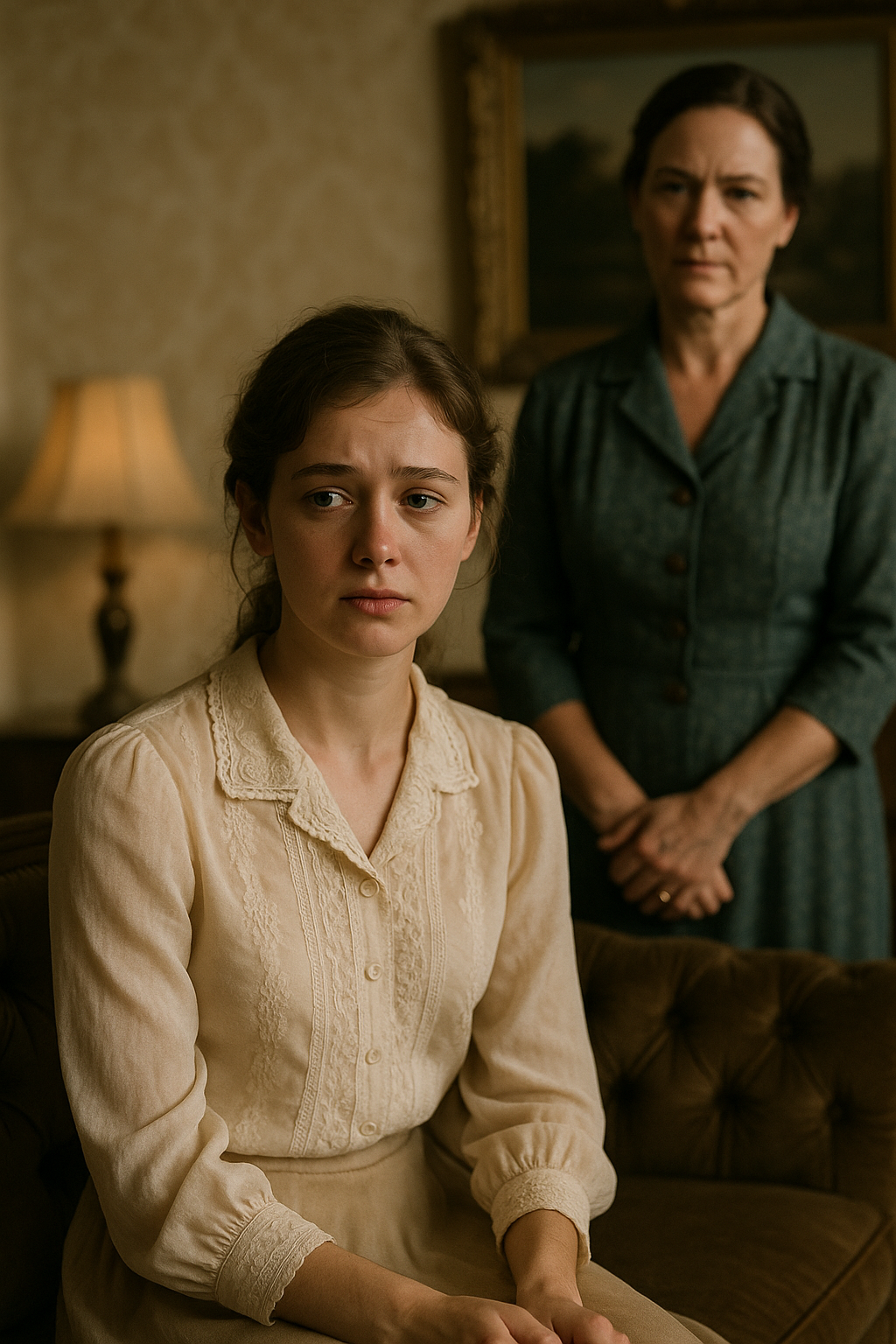
At twenty-three, Eleanor dreamed of writing novels and seeing the world. She longed for someone to love not just her name or her face, but her thoughts—her poetry, her questions, her clumsy laughter.
But her parents had other plans.
It all began on a rainy afternoon in early spring. Margaret called Eleanor into the drawing room. Her voice was soft but firm—an ominous combination Eleanor knew well.
“There’s a family we’ve known for decades,” Margaret began. “They’ve proposed a match. Their son, Thomas Langford. He’s… well, different. But he comes from old money. A strong family name. And we believe it’s time you settled down.”
Eleanor frowned. “Different? How so?”
Arthur stepped in. “He lost his sight in an accident two years ago. But he’s brilliant. A concert pianist before the tragedy. Kind-hearted. You’ll want for nothing.”
Eleanor’s heart sank.
They wanted her to marry a blind man she’d never met. Not out of love, but out of convenience. She felt trapped—but there was no use arguing. Her life had always been steered by others.
The wedding was arranged swiftly. Eleanor met Thomas only twice before the ceremony. He was calm, well-spoken, and always polite. He wore dark glasses, and though he couldn’t see her, Eleanor felt as though he saw too much—somehow deeper than most people with perfect sight.
“I know this is sudden,” he said during their second meeting, “and not ideal for either of us. But I hope we can be… kind companions, at the very least.”
She nodded, unsure whether she was grateful or heartbroken by his honesty.
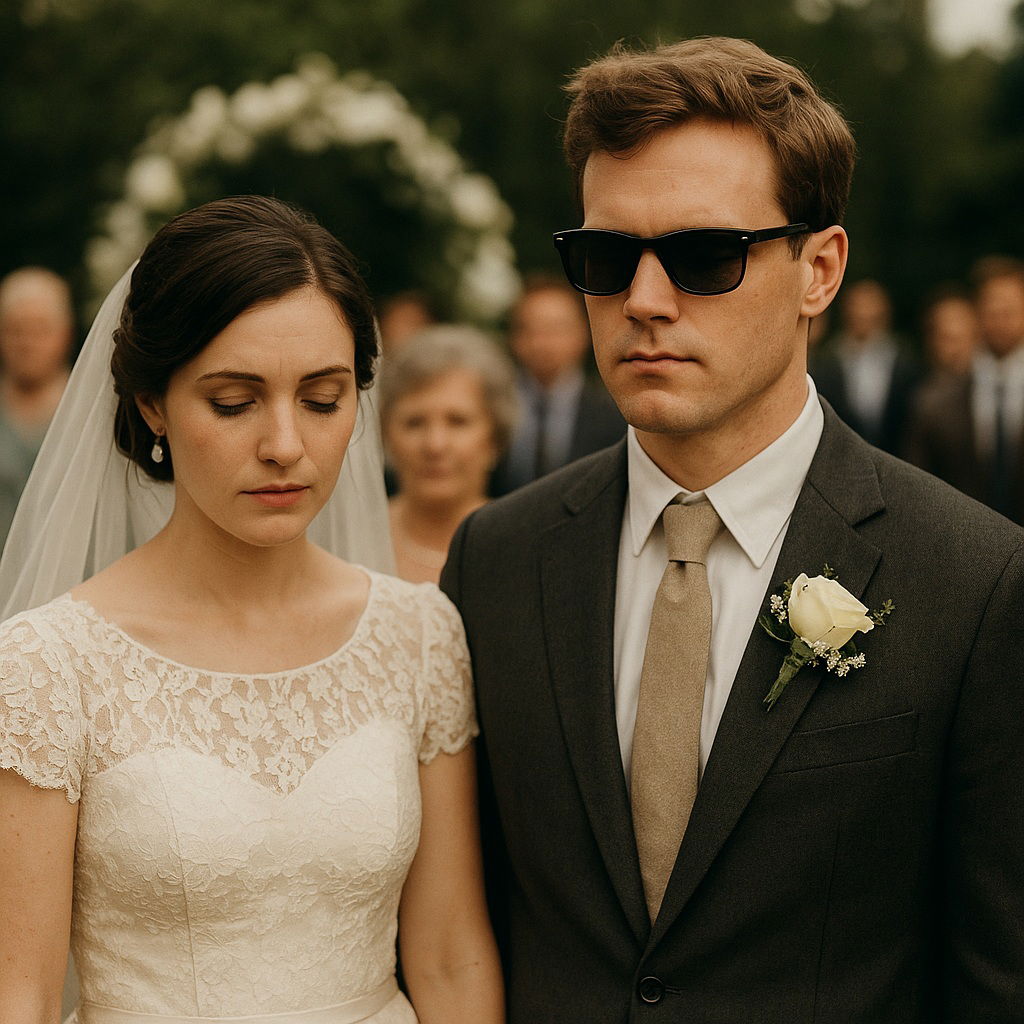
The wedding took place in the Langford estate’s grand garden. It was beautiful, almost cruelly so. Eleanor wore ivory lace. Thomas stood tall beside her, his arm gently guiding hers.
“I can’t see you,” he whispered before the vows, “but I imagine you look like a spring morning.”
Tears stung her eyes.
Their marriage began with awkward silences and careful kindness. Eleanor was given a spacious suite, and Thomas had his own. They dined together, shared morning walks in the garden, and read together in the evenings.
Though they were strangers, they were never unkind.
One night, two months into the marriage, Thomas asked, “Do you ever wish you’d said no?”
Eleanor paused. “Sometimes,” she admitted, her voice a whisper. “But then I remind myself that kindness grows even in unexpected soil.”
Thomas smiled. “You have a beautiful way with words.”
She chuckled softly. “I wanted to be a writer once.”
“Then why aren’t you?”
“My parents didn’t think it was proper.”
He grew quiet. “Eleanor… if I ever see again—if I can—I’d like to see your writing first.”
She didn’t know how to respond. But something inside her softened.
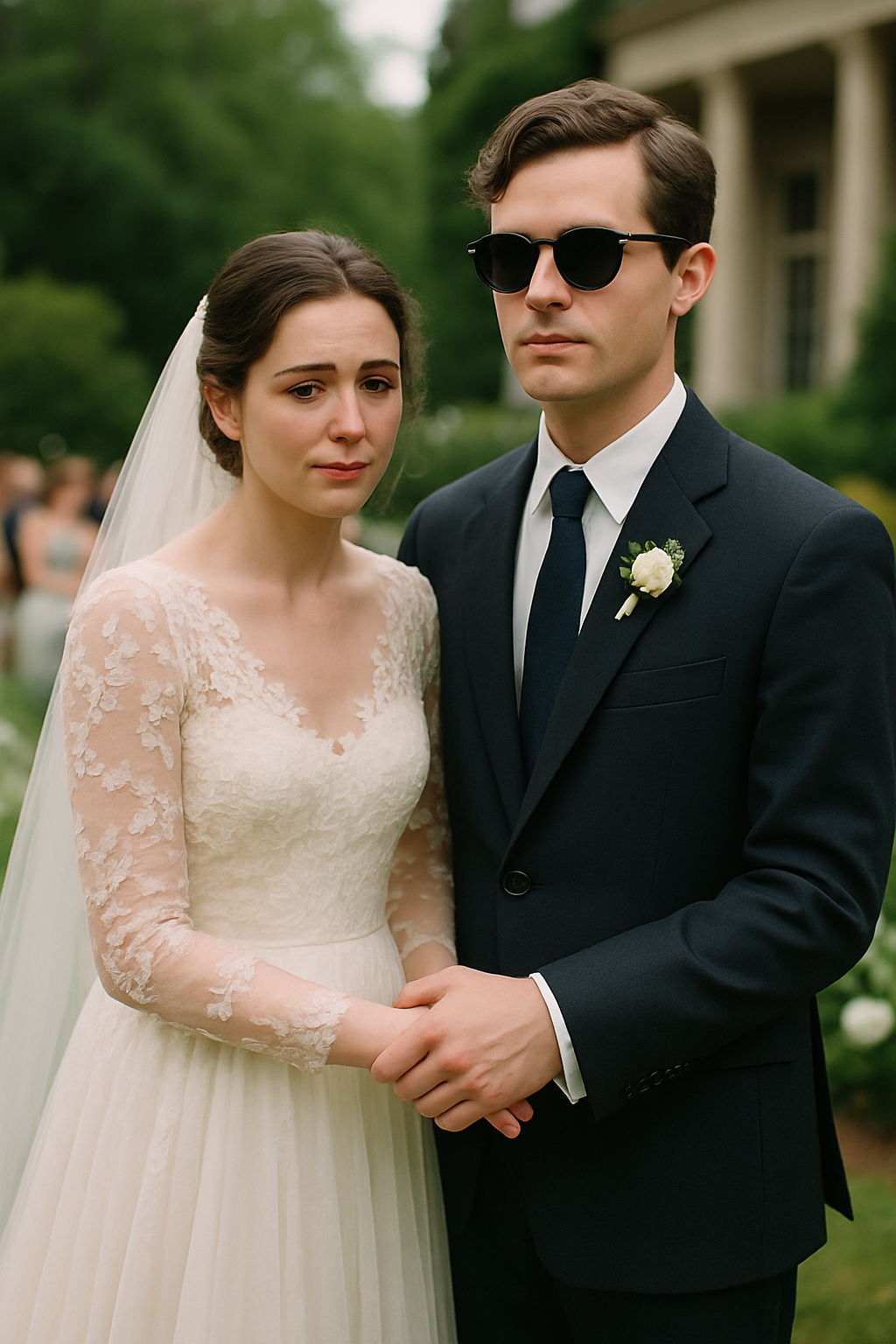
Weeks turned to months, and the cold formality began to warm. Eleanor started writing again. Thomas listened as she read her pages aloud. He offered feedback, encouragement—even challenged her to write a poem each morning.
Their bond deepened—gently, almost imperceptibly.
Then came the day everything changed.
Thomas had gone to a private specialist clinic once every few weeks. Eleanor knew he was undergoing experimental treatment, but he’d never spoken of his hopes. She assumed he’d long accepted his blindness.
One morning, she found him sitting motionless by the window, the sunlight spilling across his face. She entered quietly.
“Thomas?”
He turned slowly.
“I saw it,” he whispered. “The light. A shape. Just for a second.”
Eleanor’s heart skipped. “Truly?”
He nodded. “I didn’t want to get my hopes up… but the doctors say there’s a real chance.”
Tears spilled down her cheeks. “Oh, Thomas… that’s wonderful!”
He reached out, found her hand, and squeezed it. “If I ever see again, the first thing I want is to look at you.”
A week later, it happened.
Thomas opened his eyes—and the world slowly, painfully, came into focus. It was blurry at first, like gazing through fog, but shapes became sharper, colors returned.
And then, one morning, Eleanor entered his room to bring him tea.
He turned to her.
His eyes locked onto hers.
“Eleanor,” he whispered, stunned. “You’re… radiant.”
She smiled through tears. “Welcome back, Thomas.”
But joy was not the only thing waiting.
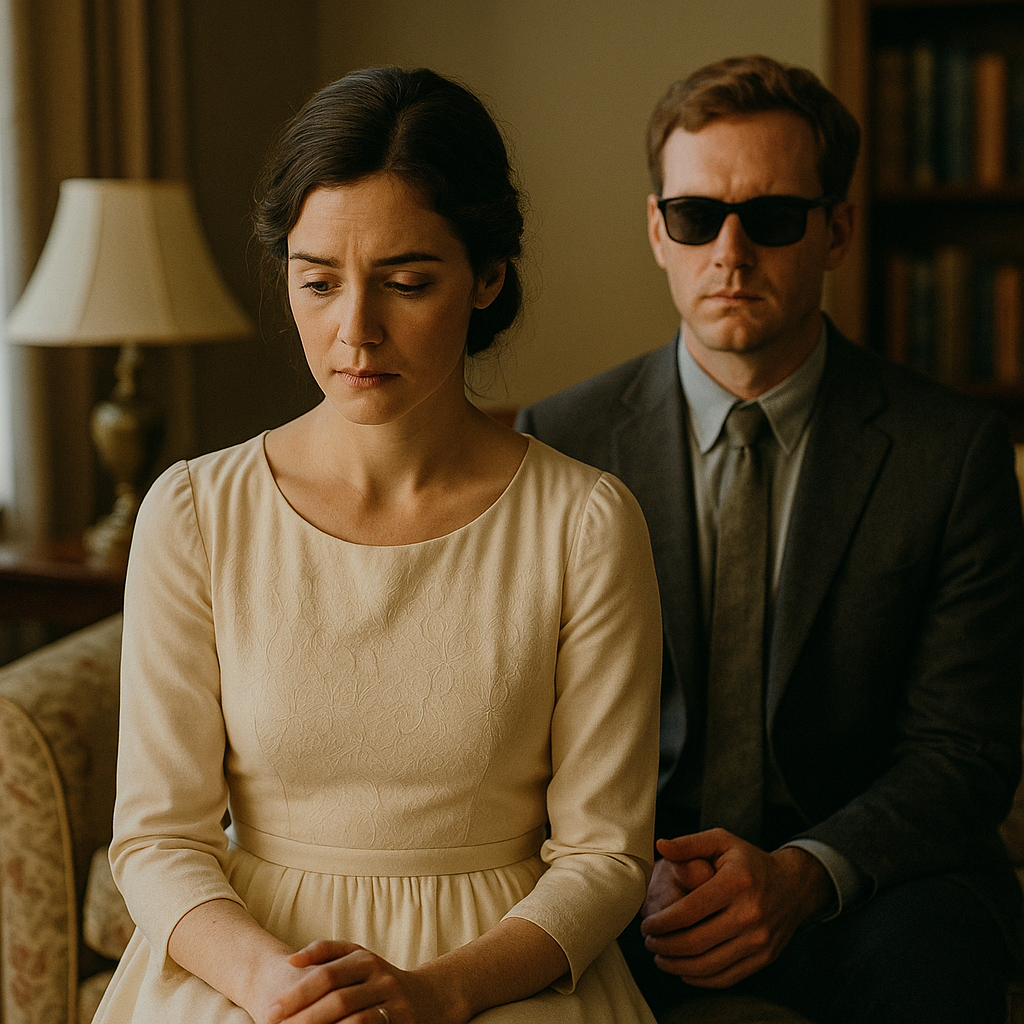
With his sight restored, the Langford family—especially his mother, Evelyn—began pushing him toward the life he’d left behind.
Now that he could see, they wanted him to return to public life. Social events. Charity galas. The elite circles.
And they wanted someone by his side who fit that image.
Eleanor was not that person, in their eyes.
She was kind. Poised. But not ambitious. Not elite.
Whispers began behind closed doors. Eleanor heard the servants talk. She saw the way Evelyn looked at her—no longer with politeness, but with scrutiny.
One afternoon, Evelyn invited Eleanor for tea.
“I hope you won’t take this the wrong way,” she said, stirring her cup delicately. “But now that Thomas is… whole again, he must consider his future. A future that may not align with yours.”
Eleanor blinked. “Are you saying I should step aside?”
“I’m saying… it would be noble of you. Selfless. You gave him comfort in darkness. But he needs someone who shines in the light.”
Eleanor left the room trembling.
She didn’t speak of it to Thomas. But he sensed something was wrong.
“You’ve grown quiet again,” he said that night.
She looked away. “Perhaps it’s just the house. It feels… colder lately.”
Then, at a formal dinner a few days later, everything came to a head.
Thomas arrived late, dressed impeccably, accompanied by a woman Eleanor had never met—tall, glamorous, with a voice like champagne. Her name was Camille.
Evelyn introduced her to the guests as a longtime family friend. But Eleanor saw the plan behind it all.
Camille was the woman they wanted Thomas to be with.
Polished. Prominent. Seen.
Eleanor stood quietly by the piano, her heart aching.
After dinner, Thomas approached her.
“Can we talk?” he asked.
She nodded and followed him to the terrace.
“I didn’t invite Camille,” he said, voice low. “That was my mother’s idea. I had no choice.”
“I understand,” Eleanor said. “You have your life to live.”
He stared at her. “You think I want someone else?”
“Don’t you?” she asked, forcing a smile. “Now that you can see… I imagine the world feels different.”
Thomas stepped closer. “You were my world before I ever saw a thing.”
She looked down, breath trembling.
“I was forced into this marriage just like you were,” he said. “But I fell in love with you, Eleanor. In the darkness. In your words. In the kindness of your soul.”
“But they—your family—they’ll never accept me.”
“Then I’ll leave,” he said. “If I must choose between their world and you—I choose you.”
She looked up, stunned.
“You’d leave everything?”
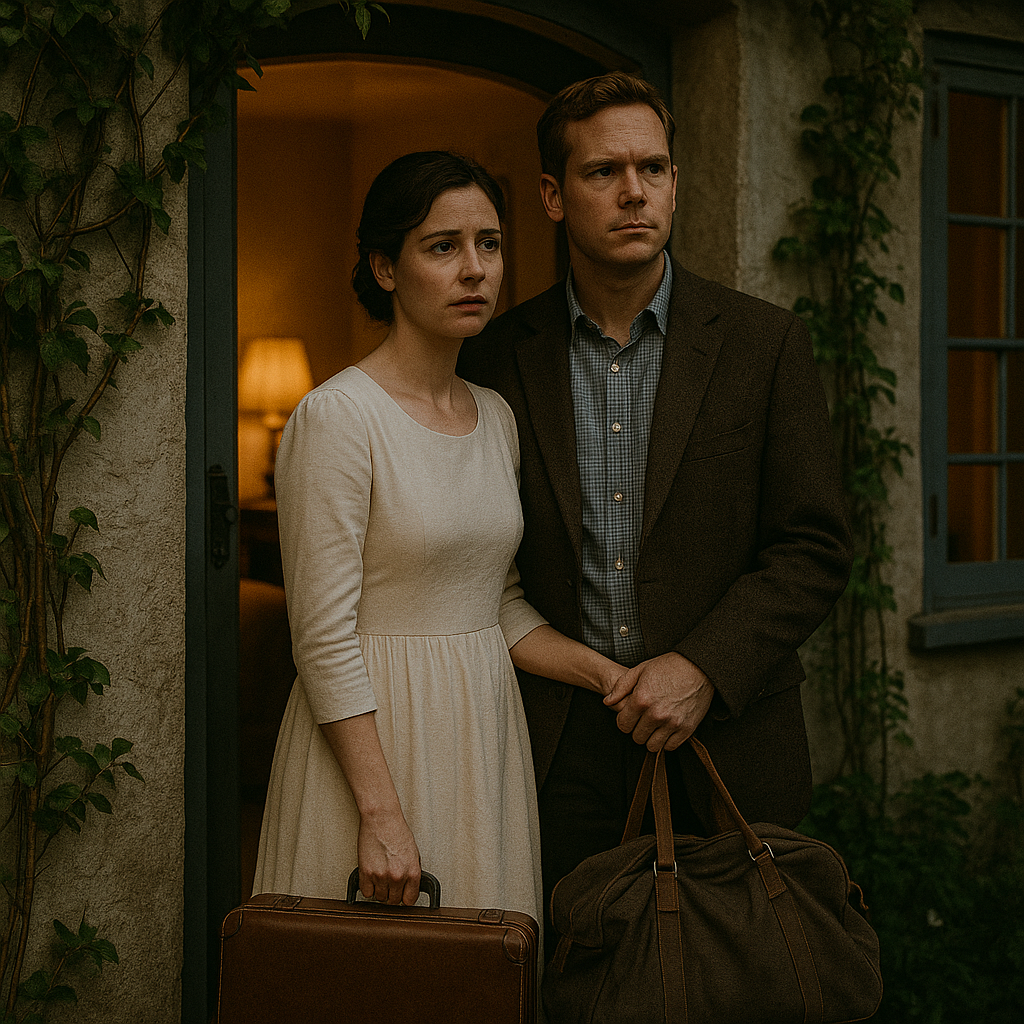
“I was blind,” he whispered, “and yet I saw more truth in you than I’ve seen in any of them.”
They left that very night—quietly, without fanfare. Just a small bag of essentials and her unfinished manuscript.
They moved to a cottage in the countryside. Thomas played piano again, this time not for fame, but for joy. Eleanor wrote, and eventually published her first book—Kind Companions, dedicated to “the man who saw me before he ever could.”
Years passed.
They lived simply, joyfully. A dog. A garden. Morning poems. Evening songs.
And every time Eleanor looked at Thomas, she knew—Sometimes, it’s only when the eyes open that everything collapses. But what collapses… makes space for what truly matters to rise.


